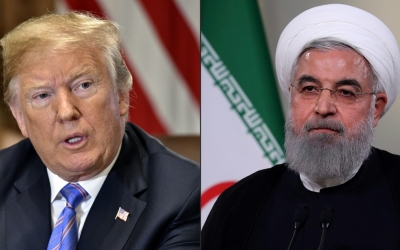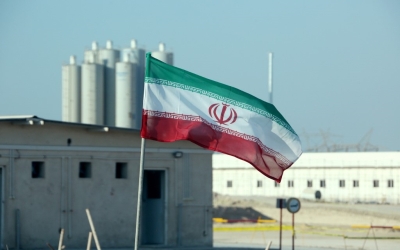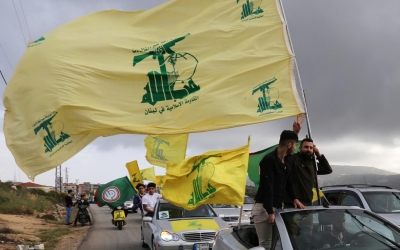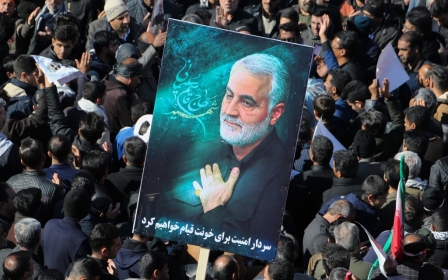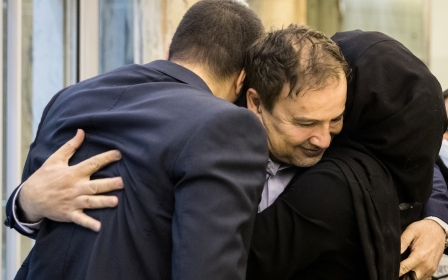US Republicans propose biggest-ever sanctions package against Iran
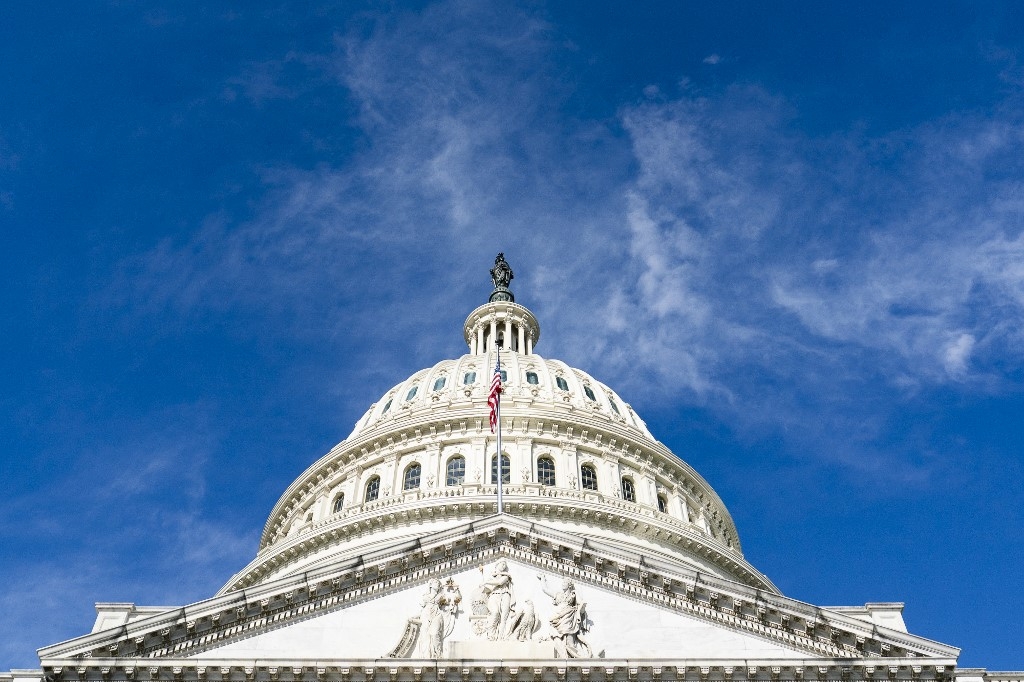
Republican members of the US Congress have unveiled a raft of policy proposals targeting Iran and its allies, including the biggest-ever sanctions package.
The 115-page strategy document put together by the Republican Study Committee (RSC), the largest Republican caucus in Congress, includes more than 140 initiatives aimed at Iran and its allies, including Russia and China.
The document, which was released on Wednesday, includes 25 policy recommendations on Iran, and also calls for halting US aid to Lebanon, ending waivers to Iraq and for Yemen's Houthi movement to be designated as a terrorist organisation.
The document says that while "Iran is not a great power or strategic competitor" like Russia or China, it poses a "significant challenge as a rogue regime backed by a military and intelligence apparatus while being the world's leading state sponsor of terrorism."
The recommendations, which are signed by 13 Republican members of Congress, praise US President Donald Trump's "maximum pressure campaign" and slam the Obama administration, accusing it of adopting an "overly restrained approach in dealing with Iran's aggression" in its attempt "to reach a nuclear agreement with Iran."
New MEE newsletter: Jerusalem Dispatch
Sign up to get the latest insights and analysis on Israel-Palestine, alongside Turkey Unpacked and other MEE newsletters
"The [2015 Iran nuclear] deal gave Iran over $100 billion in frozen assets, which former Secretary of State John Kerry admitted would be used by the regime to fund terrorism," the report says.
"Iran then doubled down on its destabilising behavior in the region, using its newfound cash to fund tens of thousands of terrorist militias to support the Assad regime, fund Hezbollah, and support Iranian-backed militias in Iraq and the Houthis in Yemen."
Maximum pressure campaign
Since Trump walked away from the Iran nuclear deal in 2018, the White House has initiated what it calls a "maximum pressure campaign," reimposing previous sanctions and introducing several new ones with the stated goal of "bringing Iran to its knees."
The RSC said it views the legislative proposal as an extension of that campaign and would end certain programmes that have helped keep the Iran nuclear deal alive.
The RSC proposes the snapback of all international sanctions against Iran that were lifted as a part of the 2015 international nuclear accord.
"The Task Force believes that triggering snapback sanctions on Iran is essential to achieving maximum pressure on Iran," it says.
The Trump administration has been trying to use a UN Security Council measure to reinstate a UN arms embargo against Tehran, in order to stop countries, namely Russia and China, from selling weapons to the Islamic Republic from October.
The RSC also calls for imposing sanctions on sectors outside of Iran's nuclear programme, including the automotive, finance and construction industries.
"As Iran tries to evade the full range of penalties tied to the transfer, sale, shipment, and storage of oil, its non-oil industries - which continue to generate funds for the regime - should not be forgotten," the committee said.
Ending sanctions waivers
As a part of the package, the RSC's proposal also seeks to end any and all sanctions waivers given to Iran and countries that are doing business with Tehran.
The sanctions waivers were mainly given to countries that were doing business with Iran in the hope that they could begin to find alternatives and slowly wean themselves of importing from Tehran.
Still, many Iran hawks in the US administration have been pushing for harsher measures to ensure Iran's economic downfall.
Last month, Pompeo ended sanctions waivers for Iranian nuclear facilities, which the RSC said in its proposal did not go far enough.
It said that the US should end sanctions waivers that allow Iran to sell electricity to Iraq, after the two countries signed an $800m deal last week.
The RSC proposal also says that every Iraqi militia group that was responsible for attacking the US embassy in Iraq should be sanctioned.
The legislation will first need to pass both the House of Representatives and the Senate before being sent off for final approval by Trump.
Designating Houthis a 'terror group'
Within the legislative package, the RSC calls for the US to designate Yemen's Houthis as a foreign terrorist organisation (FTO), and impose sanctions on that group.
Since 2015, Yemen has been gripped by fighting between the Iran-aligned Ansarullah movement and the US-backed Saudi-led coalition that intervened in the country with the stated aim of restoring the government of President Abd Rabbuh Mansour Hadi.
The committee argues that the Houthis can be designated as an FTO because they have ties to Iran's Revolutionary Guard Corps (IRGC), an elite branch of Iran's military. The IRGC was designated as a terrorist organisation by the Trump administration last year.
"The militia, whose slogan is 'Death to America' and 'Death to Israel,' receives significant support from Iran and has launched ballistic missile attacks against Saudi Arabia, attacking its military bases, civilian airports, and oil infrastructure," the document reads. "Yet, it has not been designated as an FTO."
The State Department is responsible for identifying and designating FTOs, and in order to do so must provide evidence of terrorist attacks, as well as the capability for engaging with future attacks against US security interests.
The document also urged conservative members of Congress to "reject efforts to end US support for Saudi operations in Yemen."
On Lebanon, the RSC called for a halt of all US security assistance given to Beirut, claiming that millions of dollars given to the country are being used to aid Hezbollah, which is designated as an FTO by the State Department.
The US gives about $160m to the Lebanese Armed Forces each year to help them against external and internal threats, including Hezbollah.
The policy proposal also calls for sanctions against Hezbollah's allies, mentioning former Foreign Minister Gibran Bassil and the speaker of Lebanon's parliament, Nabih Berri, by name.
Middle East Eye delivers independent and unrivalled coverage and analysis of the Middle East, North Africa and beyond. To learn more about republishing this content and the associated fees, please fill out this form. More about MEE can be found here.


